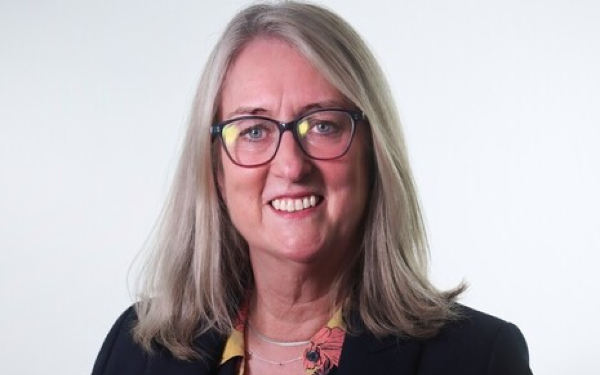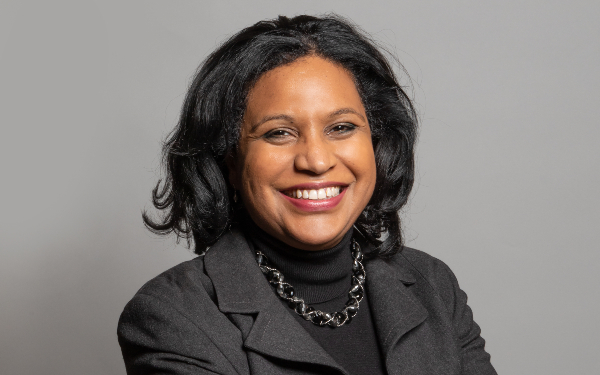The government has vowed to continue with work initiated by its predecessor to tackle workloads among local authority children’s social workers.
The Labour administration has also indicated it will continue reforms started by the Conservatives to improve early help for families and boost the recruitment of foster carers.
In the House of Lords this week, education minister Baroness (Jacqui) Smith said the government would “continue the work of the national workload action group” (NWAG), and that it would report by January 2025 on how to reduce burdens on practitioners.
Workload action group
The NWAG is a group of sector leaders, established by the last government, to “consider drivers of unnecessary workload and to develop solutions so that social workers have enough time to spend working directly with children and families”.
The initiative came out of the Conservatives’ Stable Homes, Built on Love children’s social care reform agenda and was based on a recommendation from the 2021-22 Independent Review of Children’s Social Care (the “care review”).
It appointed a consortium led by Research in Practice, including Essex County Council and King’s College London, to support the NWAG up to March 2025,while also developing resources to help councils improve retention and make better use of agency staff.
Plans to tackle managerialism and caseloads
In spring this year, the consortium selected 22 councils to help develop and test resources designed to cut workloads, based on a shortlist of priority actions selected by the DfE from a wider menu produced by Research in Practice.
Brief published minutes from a NWAG meeting on 20 May 2024 said the priority actions related to managerialism and administration, supervision, workload and caseload management, case recording and hybrid working.

Baroness Jacqui Smith (photo from Department for Education)
Smith gave her pledge to continue the NWAG’s work in response to a question from Baroness (Diana) Barran – a Conservative DfE minister from 2022-24 – about the negative impact of social worker turnover on children in care.
In response, Smith linked tackling working conditions to enhancing workforce stability, pointing to both the NWAG and the separate work by the consortium to develop resources to boost social work retention, which she said would be published this autumn.
Use of agency staff ‘worrying’
The minister also described councils’ use of agency staff as “worrying”, in the context of 17.8% of full-time equivalent council children’s social workers in England being locums as of September 2023.
“There are many good and high-quality social workers who come through the agency route, but their position is more likely to be unstable than it would be with a permanent worker,” she said.
“That is why the department is already building a new relationship with the children’s social care workforce and is looking at how to improve support for workers in children’s social care.”
Agency social work rules
While referencing the NWAG and associated work, she did not refer to the agency social work rules drawn up by its Conservative predecessor, another element of Stable Homes based on a recommendation from the care review.
However, on 12 September 2024, the government confirmed that it would implement the rules.
These will require councils to set regional caps on how much they pay agencies to employ locums, not hire agency practitioners who do not have three years’ permanent experience and maintain direct management of all social workers engaged via agency project teams.
The rules will come into force in three stages. Most will be implemented from 31 October 2024, with councils then required to submit data on their use of agency staff from the start of 2025 and then the price caps coming into force in spring next year.
Speaking in July this year, just after Labour came to power, the Association of Directors of Children’s Services (ADCS) president, Andy Smith, said he expected the statutory guidance governing the rules to come into force in September.
Falling use of locums in anticipation of rules
He told Community Care at the time that the anticipation of the rules was leading councils to work together to reduce use of agency staff.
Meanwhile, four regions – the East of England, East Midlands, London and the South East – have announced a plan to develop a common agreement for their use of locums that is designed to tie in with the national rules.
Baroness Smith did set out other elements of the Stable Homes agenda that Labour would persist.
Fostering policies to continue
She said it would continue the policy of regional fostering recruitment hubs, which provide a single point of contact for people interested in fostering and support them through the process from initial enquiry to application.
Smith said the hubs covered 64% of the country, while councils not involved would be able to continue using Fosterlink, a DfE-funded support service to help them improve foster care recruitment practices.
The Conservatives provided £36m from 2023-25 to fund these and other initiatives in order to recruit 9,000 more foster carers and redress a 6% drop in the number of mainstream fostering households from 2021-23.
Labour to ‘build on’ family help work
Baroness Smith also said that the government would “build on” the work of the 10 families first for children pathfinders to respond earlier to the issues families face. The pathfinders are testing a new model of children’s services proposed by Stable Homes and recommended by the care review, which comprises:
- Multidisciplinary family help services, merging pre-existing targeted early help and child in need provision, to provide earlier support to families to help them overcome challenges and stay together.
- Expert-led multi-agency child protection teams, including specialist social workers, known as lead child protection practitioners, to improve the response of children at risk of significant harm.
- Greater use of family networks when families need support, involving the wider family in decision-making at an earlier stage and providing support packages to help them keep children safe and well at home.
- Strengthened multi-agency safeguarding arrangements, including an increased role for education.
Prior to Smith’s comments, Labour has been relatively quiet on how far it will follow the Stable Homes, Built on Love agenda.
Children’s Wellbeing Bill
Instead, it has promoted the forthcoming Children’s Wellbeing Bill – announced in the King’s Speech – as its key vehicle for transforming children’s social care.

Janet Daby (credit: Richard Townsend Photography)
As set out in the King’s Speech, this is designed to strengthen multi-agency child protection arrangements while, earlier this month, children’s minister Janet Daby said it would also seek to tackle “profiteering” among providers of placements for children in care.
Smith repeated this point in the House of Lords this week.
“Local authorities are currently providing 45% of looked-after children’s placements and the private sector is providing 40%, some of which offer stability, high-quality and loving care for our children,” she said.
“However, where it is clear that placement providers are profiteering from the most vulnerable children in the country, this Government are absolutely committed to taking action.”





 Bournemouth, Christchurch and Poole
Bournemouth, Christchurch and Poole  Hampshire County Council
Hampshire County Council  Lincolnshire County Council
Lincolnshire County Council  Norfolk County Council
Norfolk County Council  Northamptonshire Children’s Trust
Northamptonshire Children’s Trust  South Gloucestershire Council
South Gloucestershire Council  Wiltshire Council
Wiltshire Council  Wokingham Borough Council
Wokingham Borough Council  Children and young people with SEND are ‘valued and prioritised’ in Wiltshire, find inspectors
Children and young people with SEND are ‘valued and prioritised’ in Wiltshire, find inspectors  How specialist refugee teams benefit young people and social workers
How specialist refugee teams benefit young people and social workers  Podcast: returning to social work after becoming a first-time parent
Podcast: returning to social work after becoming a first-time parent  Podcast: would you work for an inadequate-rated service?
Podcast: would you work for an inadequate-rated service?  Family help: one local authority’s experience of the model
Family help: one local authority’s experience of the model  Workforce Insights – showcasing a selection of the sector’s top recruiters
Workforce Insights – showcasing a selection of the sector’s top recruiters 

 Facebook
Facebook X
X LinkedIn
LinkedIn Instagram
Instagram
The above actions appears promising in my opinion. I hope this brings some credibility back to a service which is necessary to protect vulnerable children,adults and families.
The service as a much wider impact on the community and the community we trained to support if systems are not in place and or do not work.
Some councils will keep adults caseloads low enough but expect turnover at ridiculous levels.
Chronic understaffing will remain where councils don’t value staff and will just blame it on the budget savings.
Whilst this is admirable, surely something comparable is necessary for those working with adults where the pressures and case loads are unremitting.